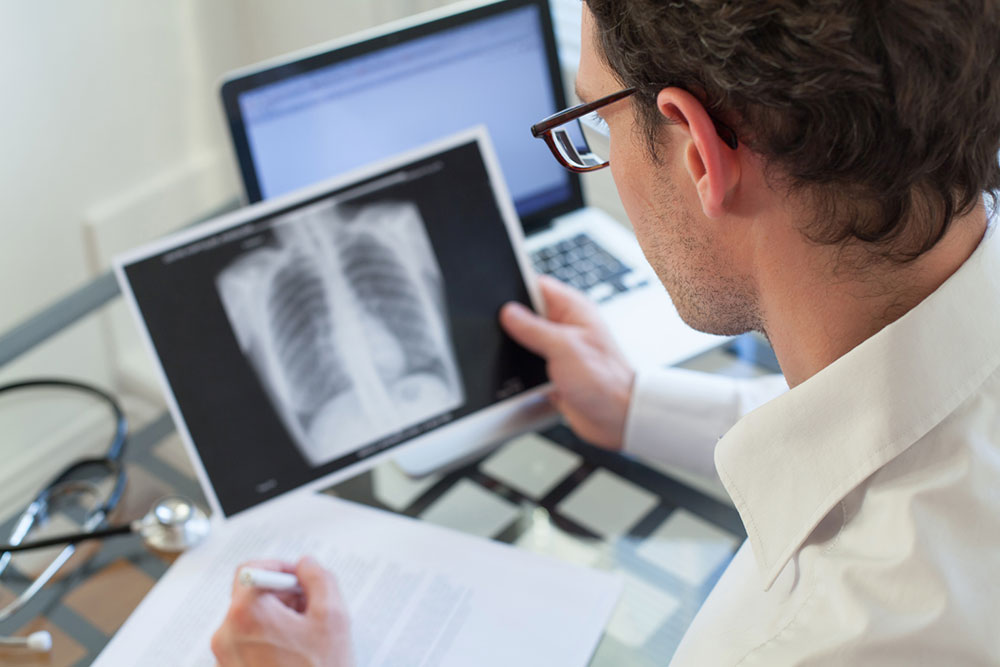Pneumonia – Symptoms, Causes, Risk Factors, and Diagnosis
Pneumonia symptoms, whether mild or severe, should be immediately examined by a physician. A medical professional will suggest the right tests for diagnosing this disease. One should strictly follow the post-treatment precautions recommended by the doctor.
Symptoms of pneumonia
The symptoms of pneumonia range from mild to severe. Other factors that affect the signs of this condition are the type of pneumonia, the age of the patient as well as the state of health.
Here are some signs of pneumonia:
- Cough
Patients experience incessant coughing. It is accompanied by mucus, which may be green or yellow. There might be traces of blood in the mucus.

Another symptom of pneumonia is a fever. It could range from mild to high fever.
Patients who have pneumonia are likely to feel extremely cold, and they are also likely to shiver or shake with it.
You might feel short of breath while climbing a flight of stairs.
Deep breathing or coughing could induce sharp or stabbing chest pain.
There might be headaches which are of different intensities.
People report sweating and moistness of the skin.
Patients have no desire to eat. They also experience reduced energy levels and a lot of fatigue.
Senior citizens may experience a feeling of confusion with other symptoms of pneumonia.
Types of pneumonia
- Bacterial pneumonia
In this type of pneumonia, temperatures reach alarming levels of up to 105 degrees. It could be accompanied by an excessive amount of sweating. The intensity of breathing goes up, and so does the pulse rate. Because of a deficiency of oxygen in the blood, the lips, as well as nail beds, might turn blue. The patient may be in a state of confusion or delirium. - Viral pneumonia
The symptoms of viral pneumonia are quite similar to that of influenza. A patient experiences fever, headache, dry cough, weakness as well as muscle pain. People experience breathlessness for half a day to a day and a half. The coughing worsens, and so does the production of mucus. Patients may have a high fever, and their lips might turn blue.
The primary causes of pneumonia
Bacteria, viruses, mycoplasmas, fungal infections or the inhalation of toxic products can cause pneumonia. Viral pneumonia could lead to bacterial pneumonia. Identifying the reason behind pneumonia is essential as it will determine the mode of treatment.
The risk factors of pneumonia
Some categories of people are more prone to contracting pneumonia than others.
The risk factors are:
- Smoking
Smoking cigarettes can lead to lung infections which could result in pneumonia. - Viral infection
If you have suffered from a viral infection of the respiratory tract recently like a cold, influenza or laryngitis, you could face a higher risk of pneumonia. - Problem with swallowing
When you have a stroke, Parkinson’s disease, dementia, or some other type of neurological problem, you might have difficulty in swallowing. All this might cause aspiration, where a foreign object might enter your system while you are breathing. - Chronic lung diseases
Pneumonia can also be triggered by chronic diseases of the lung like bronchiectasis, coronary obstructive pulmonary disease or cystic fibrosis. - Cerebral palsy
People with cerebral palsy face a higher risk of having pneumonia. - Serious ailments
Serious ailments like heart disease, diabetes or cirrhosis of the liver could lead to pneumonia. - Nursing facility
You could, unfortunately, be at risk of contracting pneumonia while recuperating at a nursing facility. - Impairment of consciousness
Patients who have suffered from a stroke, dementia or other types of neurological problems are at a higher risk of developing pneumonia. - Recent surgery
People who are recovering from surgery or have faced trauma in the recent past are likely to develop pneumonia. - Poor immunity
Certain kinds of illnesses, medications as well as disorders of the immune system put you at risk of developing pneumonia due to reduced immunity.
Diagnosis Of Pneumonia
- Physical exam
If there is a crackling or rumbling sound while inhaling, it could be a sign of pneumonia. - X-ray of the chest
To confirm the suspicion of pneumonia, a doctor may recommend an x-ray of the chest. - Additional tests
The doctor may ask patients to opt for other tests to confirm pneumonia like the level of white blood cells, arterial-blood gas test, chest CT scan, tests for sputum, the culture of the pleural fluid, pulse oximetry as well as bronchoscopy.
Treatment
Treatment of pneumonia includes proper hydration and rest. One should consult a doctor if there are symptoms of pneumonia, like persistent and severe coughing. One can also take aspirin or acetaminophen if they have a fever. Patients must comply with the prescribed antibiotics schedule to cure this condition.

